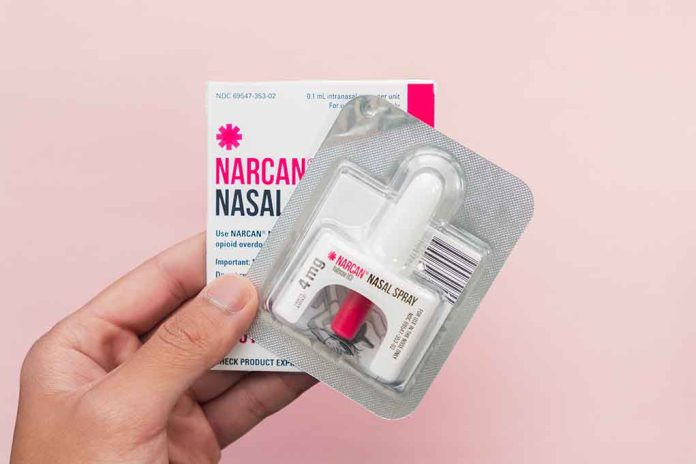
(NewsSpace.com) – The United States has a real drug problem. More than 100,000 people overdose every year, and many die because of it. The problem has only been exacerbated by the presence of fentanyl, a synthetic opioid that is 100 times more powerful than morphine. It’s even an issue on college campuses across the country, and now students at these institutions are taking matters into their own hands.
Those who attend the University of North Carolina (UNC) at Chapel Hill and the State University of New York (SUNY) Delhi may notice that there are tables set up with drug detection and reversal kits. The idea is to educate the students and give them the tools needed to detect fentanyl and prevent overdoses.
For instance, at UNC-Chapel Hill, Caroline Clodfelter, an undergraduate researcher who co-founded the Carolina Harm Reduction Union, is educating students on the concept of harm reduction. The group sponsored a table on campus and handed out naloxone, an opioid antagonist that can quickly reverse an opioid overdose — those caused by fentanyl and heroin, and the like — if caught in time. Clodfelter says the idea was borne out in high school when she had friends who were struggling, and she says she failed to approach them “in the right way.”
The same kind of support has bloomed at SUNY Delhi as well. Student affairs worker Rebecca Harrington sets up a demonstration table that shows others how to use test strips to detect fentanyl. In a party atmosphere where students are likely to pop pills, knowing whether it’s laced with the deadly synthetic opioid could be the difference between life and death.
The practice of distributing naloxone and fentanyl detection strips is becoming more commonplace. While some have said it could lead to even more drug use, research has proven that this simply isn’t true. In fact, it’s saving more lives.
Copyright 2023, NewsSpace.com










